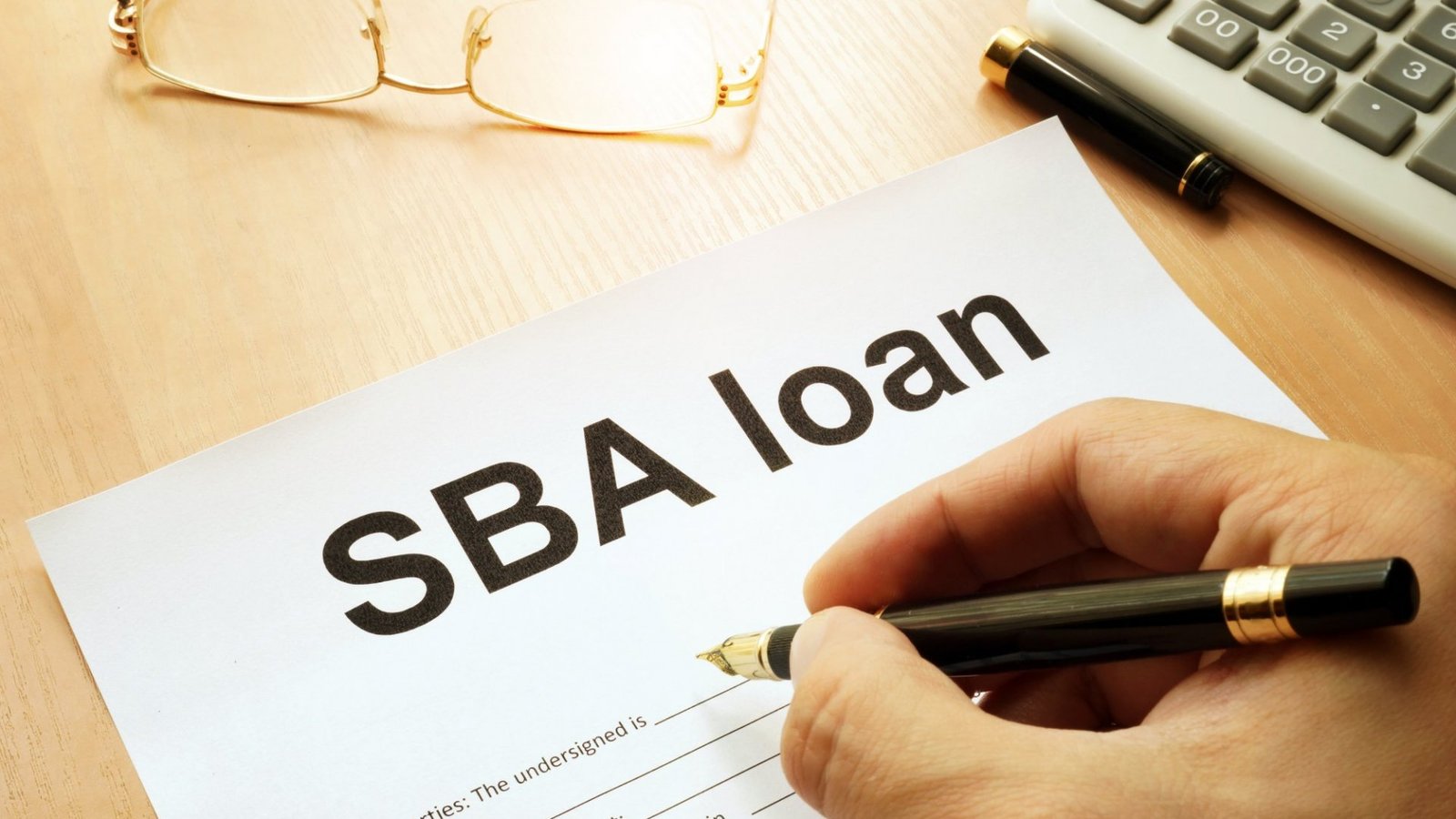Introduction to Government-Backed Loans
Government-backed loans are financial instruments that are either directly funded or insured by governmental agencies. Their primary purpose is to increase access to credit for individuals who may not qualify for traditional financing options due to factors such as poor credit history. In California, where the cost of living can be substantial, these loans serve as a crucial resource, particularly for low-income individuals and families trying to secure housing or finance their education.
One of the significant benefits of government-backed loans is that they typically come with lower interest rates compared to conventional loans. This is largely due to the reduced risk that lenders face when participating in government-backed programs. These loans can also allow for lower down payments, making them more accessible for individuals who might struggle to save sufficient funds for a house or educational expenses. Such features make government-backed loans a favorable option for borrowers with poor credit, as they provide a pathway to obtaining necessary funding when traditional loans may be out of reach.
There are various types of government-backed loans available, each designed to address specific needs. For instance, Federal Housing Administration (FHA) loans enable homebuyers with poor credit histories to qualify for a mortgage with a lower credit score requirement. Similarly, the U.S. Department of Veterans Affairs (VA) loans provide favorable terms for veterans, which can include zero down payment options. In addition, there are student loans, such as those available through the Free Application for Federal Student Aid (FAFSA), which are also backed by the government and designed to assist those with limited credit histories. Understanding these options is paramount for California residents seeking to improve their financial standing and make significant life purchases despite having poor credit.
Importance of Credit Scores in Loan Applications
Credit scores serve as a critical factor in determining an individual’s eligibility for loans, including government-backed loans for poor credit. Lenders utilize these scores to assess the likelihood that borrowers will repay their debts punctually. Typically, a credit score ranges from 300 to 850, with higher scores indicating better creditworthiness. Various elements contribute to the calculation of a credit score, including payment history, credit utilization, length of credit history, types of credit in use, and recent credit inquiries. Understanding these components is vital for individuals seeking loans, particularly those considering government-backed loans.
A low credit score can create significant hurdles when applying for conventional loans. Many financial institutions view lower scores as indicators of higher risk, which may lead to loan denials or unfavorable interest rates. Consequently, those with poor credit may find it particularly challenging to secure financing for important ventures, such as buying a home or financing education. However, government-backed loans present a potential solution for individuals with suboptimal credit scores, as these loans often come with more lenient qualification requirements than traditional financing options.
Despite the importance of credit scores, several misconceptions persist regarding their impact on loan approval. For instance, some individuals believe that a single missed payment can permanently damage their credit score. While it is true that missed payments can adversely affect scores, recovery is possible through responsible credit usage and timely payments thereafter. Additionally, many borrowers are unaware that federal programs exist specifically designed for those with poor credit, facilitating increased access to financing through government-backed loans. By debunking these myths, borrowers can better navigate the loan application process, ultimately enhancing their financial opportunities.
Types of Government-Backed Loans Available in California
In California, individuals with poor credit have access to various types of government-backed loans designed to facilitate homeownership and financial stability. The primary loan programs include FHA loans, VA loans, and USDA loans, each serving distinct demographics and needs.
The Federal Housing Administration (FHA) loan is a popular choice for first-time homebuyers, particularly those with lower credit scores. One of the most significant advantages of FHA loans is their lenient credit score requirements, allowing applicants with a score as low as 580 to qualify with a minimum down payment of just 3.5%. Additionally, this program is designed to make homeownership accessible by offering competitive mortgage rates and the ability to include down payment assistance programs. FHA loans cater specifically to individuals who may otherwise struggle to secure conventional financing due to their credit history.
Another option is the Veterans Affairs (VA) loan, which is available to eligible veterans and active-duty service members. This type of government-backed loan not only offers favorable interest rates and no down payment options but also extends to those with less than perfect credit scores. The VA loan program promotes homeownership among veterans, ensuring they receive financial assistance that recognizes their service to the country.
Lastly, the United States Department of Agriculture (USDA) loan targets rural and suburban homebuyers who meet specific income eligibility criteria. Designed to encourage rural development, this loan type offers zero down payment options and reduced mortgage insurance fees, making it an attractive option for individuals with poor credit looking to buy in eligible areas. Each of these government-backed loans plays a vital role in assisting individuals with poor credit to achieve homeownership while providing multiple paths to financial empowerment.
Eligibility Requirements for Government-Backed Loans
In California, the eligibility criteria for government-backed loans are designed to ensure that assistance reaches those who may be in critical financial situations, particularly individuals with poor credit. These loans function as a safety net, providing opportunities for homeownership and financial stability. To qualify, applicants must meet several requirements, which can differ based on the specific type of loan being sought. Common eligibility factors include income limits, employment status, and credit score thresholds.
One of the primary considerations is the applicant’s income level. Government-backed loans often have set income limits; exceeding these thresholds may disqualify the borrower. For instance, in the case of the FHA (Federal Housing Administration) loans, applicants typically must fall within 115% of the area median income, though specific threshold criteria can vary depending on the location and family size. This requirement aims to assist those with low to moderate income, thereby enhancing affordability.
Employment status is equally essential in determining eligibility for government-backed loans. Lenders prefer applicants who can demonstrate stable and consistent source(s) of income, typically through employment. Typically, individuals with at least two years of steady employment in the same field stand a better chance of approval, as this consistency indicates financial reliability. Moreover, the nature of the employment, whether full-time or part-time, may also affect the evaluation process.
Finally, while poor credit presents challenges for many borrowers, government-backed loans offer a reprieve by establishing more lenient credit score requirements in comparison to conventional loans. While exact score thresholds can vary, individuals with scores as low as 580 may qualify for specific loan programs. Understanding these nuances is critical for potential borrowers aiming to make use of government-backed loans for poor credit scenarios. Familiarity with these criteria can significantly impact the ability to secure favorable financing options.
How to Improve Your Credit Score Before Applying
Improving your credit score before applying for government-backed loans is a vital step that can significantly enhance your chances of approval, particularly for individuals with poor credit. The first actionable strategy involves paying down existing debts. High credit utilization can negatively impact your score; therefore, focus on reducing outstanding balances on credit cards and loans. Aim to keep your credit utilization ratio below 30%, which is a widely accepted benchmark for maintaining a healthy credit profile.
Another essential step is to review your credit report for errors. Many individuals are unaware that their scores may be adversely affected by inaccuracies in their credit history. Obtain a free credit report from one of the major credit bureaus and scrutinize it for discrepancies, such as incorrect account balances or outstanding debts that do not belong to you. If you find any errors, dispute them promptly with the credit bureau, as rectifying these mistakes can lead to an immediate improvement in your credit score.
Furthermore, maintaining a consistent payment history is crucial for boosting your credit score. Delinquencies and missed payments can tarnish your creditworthiness, which is particularly detrimental when seeking government-backed loans for poor credit. To avoid this, set up payment reminders or automatic payments for all your bills, ensuring that you never miss a due date.
In addition to these strategies, consider diversifying your types of credit. A healthy mix of credit cards and installment loans can positively influence your credit score. Lastly, be patient as improvements in your score may take time; however, implementing these strategies can make you a more attractive applicant for government-backed loans.
The Application Process for Government-Backed Loans
Applying for government-backed loans in California can seem daunting, especially for individuals with poor credit. However, understanding the application process is essential to navigate it successfully. First, prospective borrowers should gather the necessary documentation. Common documents required include identification, proof of income, tax returns, and details regarding current debts and assets. This documentation helps lenders assess financial situations accurately, enabling them to offer appropriate loan solutions.
Once all required documentation is prepared, the next step involves identifying lenders that specialize in offering government-backed loans for poor credit. These lenders often have experience working with clients who have credit challenges, so it is beneficial to seek out those who are knowledgeable about the specific programs available in California. One option is to consult the U.S. Department of Housing and Urban Development (HUD) website, which lists approved lenders in the area.
When approaching potential lenders, it is prudent to ask questions regarding the specific government-backed loan programs they offer, such as FHA loans or USDA loans. Understanding the details of each program, including eligibility requirements and terms, will assist in making an informed decision. Additionally, borrowers should be prepared for a pre-approval process that may require further documentation and verification of financial status.
Finally, ensuring a successful application requires maintaining open communication with the lender. Providing all requested information promptly and answering any lender inquiries can significantly enhance the application’s chances of approval. Borrowers should also be aware that while government-backed loans provide assistance to those with poor credit, refining their credit score prior to applying may lead to better loan terms.
Overcoming Challenges in the Loan Application Process
Individuals with poor credit often encounter several hurdles during the loan application process, particularly when seeking government-backed loans. One common challenge is the stringent eligibility criteria set forth by lenders. Government-backed loans typically emphasize creditworthiness, which can make it difficult for those with less than stellar credit histories to secure funding. Moreover, many applicants may lack a comprehensive understanding of what constitutes a qualifying credit score, leading to confusion and frustration when they are denied.
Another significant challenge includes the documentation required for loan applications. Individuals may struggle to gather the appropriate paperwork that proves their financial standing and ability to repay the loan. This situation can be especially daunting for those who have faced financial instability or have limited experience with the formalities of loan application processes. To combat these challenges, it is advisable for applicants to seek guidance from financial advisors or organizations specializing in assisting those with poor credit.
Furthermore, understanding different government-backed loan programs is crucial. Options such as the Federal Housing Administration (FHA) loans or the U.S. Department of Agriculture (USDA) loans often provide more lenient requirements for poor credit borrowers. By investigating these alternatives, applicants can find suitable programs that align with their financial situations.
Persistence is key in navigating the application process. While setbacks can be discouraging, individuals should remain proactive and adaptable. Reaching out for assistance from nonprofit credit counseling services, exploring local financial institutions that understand the challenges of poor credit, and utilizing dedicated online resources can facilitate the journey. In overcoming these challenges, applicants not only increase their chances of securing government-backed loans but also gain confidence in managing their financial futures.
Success Stories: Real-Life Examples of Homeownership
California is a state known for its diverse population and vibrant communities, which are increasingly at risk of being priced out of the housing market, particularly for individuals with poor credit. However, many residents have successfully navigated these challenges through government-backed loans. These stories are not just numbers but represent the dreams and aspirations of individuals who have turned their hardships into achievements.
Consider the story of Maria, a single mother from Los Angeles. With a credit score that placed her in the “poor credit” category, Maria initially felt overwhelmed by the idea of purchasing her own home. However, she took advantage of a local program offering government-backed loans for poor credit. Through persistent efforts and the guidance of a housing counselor, Maria was able to secure a Federal Housing Administration (FHA) loan, which allowed her to step onto the property ladder. Today, she enjoys a stable home environment for her children, showcasing the transformative power of accessible financing.
Another inspiring success is that of James, a veteran from San Diego, who had faced financial setbacks due to medical expenses that impacted his credit score. With the help of government assistance and a specialized loan program designed for veterans, James was able to achieve homeownership despite his credit challenges. By leveraging a VA loan, which is a type of government-backed loan, he successfully purchased a home that offers him both stability and security. His experience is a testament to how targeted support can empower individuals, proving that even those with less-than-ideal credit histories can realize their dreams of homeownership.
These examples highlight the importance of government-backed loans in providing opportunities for residents with poor credit. With the right resources and determination, achieving homeownership is feasible, affirming that the path to owning a home is open to all, irrespective of their financial past.
Conclusion: The Path to Financial Stability
In conclusion, government-backed loans present a vital opportunity for individuals in California facing the challenges of poor credit. These loans, offered through various federal and state programs, are designed to assist those who might otherwise struggle to secure traditional financing. By understanding the different types of government-backed loans available, such as FHA loans and VA loans, individuals can make informed decisions that align with their financial situations.
Moreover, these loans not only facilitate access to homeownership but also promote financial stability for those who may have encountered setbacks in their credit history. The advantages of lower down payment requirements and more lenient qualification criteria make government-backed loans for poor credit an appealing option for many. Through these initiatives, the aim is to bridge the gap for potential homeowners who are equally deserving of the benefits of stable housing.
Taking proactive steps towards financial health is integral for those looking to refinance or purchase a home. It is advisable for potential borrowers to review their credit reports, identify areas for improvement, and seek counseling if necessary. Understanding one’s financial landscape helps in effectively managing debt and improving credit scores over time. Utilizing government-backed loans can be a strategic move towards achieving long-term financial goals.
Thus, for individuals facing poor credit, engaging with available resources and exploring the myriad of government-backed loans can assist in transforming aspirations of homeownership into reality. The journey may require time and effort, but with the right guidance and opportunities, financial stability is indeed attainable.




